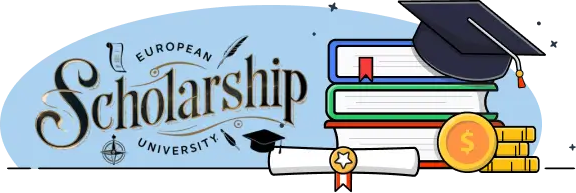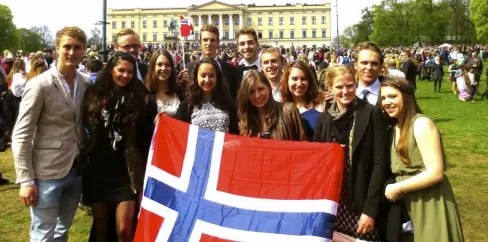Enter OTP

International students choose Europe as their destination for studies due to a combination of factors. Europe comprises 44 countries with diverse cultures, languages, and histories, offering a rich cultural experience alongside high-quality education. Renowned for academic excellence, European universities rank among the best globally and provide a wide range of programs taught in English. Read more





World-class research at top European universities.Europe boasts approximately 20 universities consistently ranked within the top 50 globally across various prestigious university rankings.
Europe also provides the opportunity to learn other languages like French, German, Spanish, or Italian, which can be valuable in the global job market.
Europe offers vast scope of employment opportunities like Tech, engineering, and healthcare which are booming, & require huge demand for skilled international talent.
Immerse yourself in diverse cultures and languages.
Convenient travel between neighboring countries.
Better Healthcare, safety, transportation and environment.
Europe provides affordable education for international students with many countries offering low or no tuition fees at public universities. For example, in Germany, public universities do not charge tuition fees for both domestic and international students, except for a small Read more
There are numerous scholarships, grants, and funding opportunities available for international students. Programs like Erasmus+ offer financial support for students studying in Europe.
Europe is a hub for innovation and research. It offers a vibrant European Research Area (ERA) and access to top-notch funding programs like Marie Skłodowska-Curie Actions (MSCA) and European Research Council (ERC) grants.
Dorem ipsum dolor sit amet, consectetur adipiscing elit. Nunc vulputate libero et velit interdum, ac aliquet odio mattis. Class aptent taciti sociosqu
Proof of English proficiency (TOEFL, IELTS) for non-native English speakers. Some countries may require proficiency in the local language for certain programs.
Detailing academic achievements, work experience (if applicable), extracurricular activities, and relevant skills.
A statement of purpose or letter of motivation outlining the student's academic interests, career goals, and reasons for choosing the specific program and university.

Typically, two to three letters of recommendation from teachers or professors who can attest to the student's academic abilities and character.
Depending on the country and program, international students may need to take standardized entrance exams such as the SAT, ACT, GRE, or GMAT.
Some universities or programs may require an interview, either in person or via video conferencing, to assess the student's suitability for the program.
For creative arts or design programs, a portfolio showcasing the student's artistic work may be required. Some specialized programs (e.g., medicine, law) may have additional entrance tests or requirements.
 Cost of Living
Cost of LivingIt can range widely depending on location and type of accommodation. For example, In major cities like Paris, renting a single room in a shared apartment could cost between €400 to €800 per month. In smaller cities or rural areas, costs could be lower, around €300 to €600 per month.

Many European countries offer scholarships and grants for international students based on academic merit, financial need, or specific criteria.

Many universities around the world, including those in Europe, offer financial aid packages that may include tuition waivers, stipends, or research assistantships. Here are a few examples from European universities:

ETH Excellence Scholarship & Opportunity Programme (ESOP) : This program supports outstanding students pursuing a master's degree at ETH Zurich. It includes a partial stipend and tuition fee waiver.
TUM Scholarships : TUM offers several scholarships for international students, including tuition waivers and financial support, particularly for master's and doctoral students in engineering, natural sciences, and other fields.
Amsterdam Excellence Scholarship (AES) : This scholarship targets exceptionally talented students from outside the EU/EEA and covers tuition fees and living expenses for one academic year.
Quota Scheme : This scholarship scheme provides funding for students from certain developing countries, covering tuition fees and living expenses for master's and PhD programs at the University of Oslo.
Emile-Boutmy Scholarship : Sciences Po offers this merit-based scholarship to top international students outside the EU. It covers tuition fees and may include a living allowance.


International students can typically work part-time (20 hours/week) during semesters.
European countries offer various post-study opportunities for international students with PR opportunities.While the stay-back period allows student to search for work and potentially transition to a work visa, applying for permanent residency (PR) typically has longer requirements.
Many universities facilitate internships and work placements as part of the curriculum.






*(Varies as per Country & Age)
Studying in Europe offers not only academic excellence but also a culturally enriching experience with ample opportunities for personal and professional growth. Each country within Europe may have specific requirements in terms of visa regulations, cost of living, and educational approaches, so thorough research and planning is crucial before embarking on this journey.

Embark on your educational journey with confidence! Our team of admission experts is here to guide you through the process. Book a free session now to receive personalized advice, assistance with applications, and insights into your dream school. Whether you're applying to college, graduate school, or specialized programs, we're here to help you succeed.
